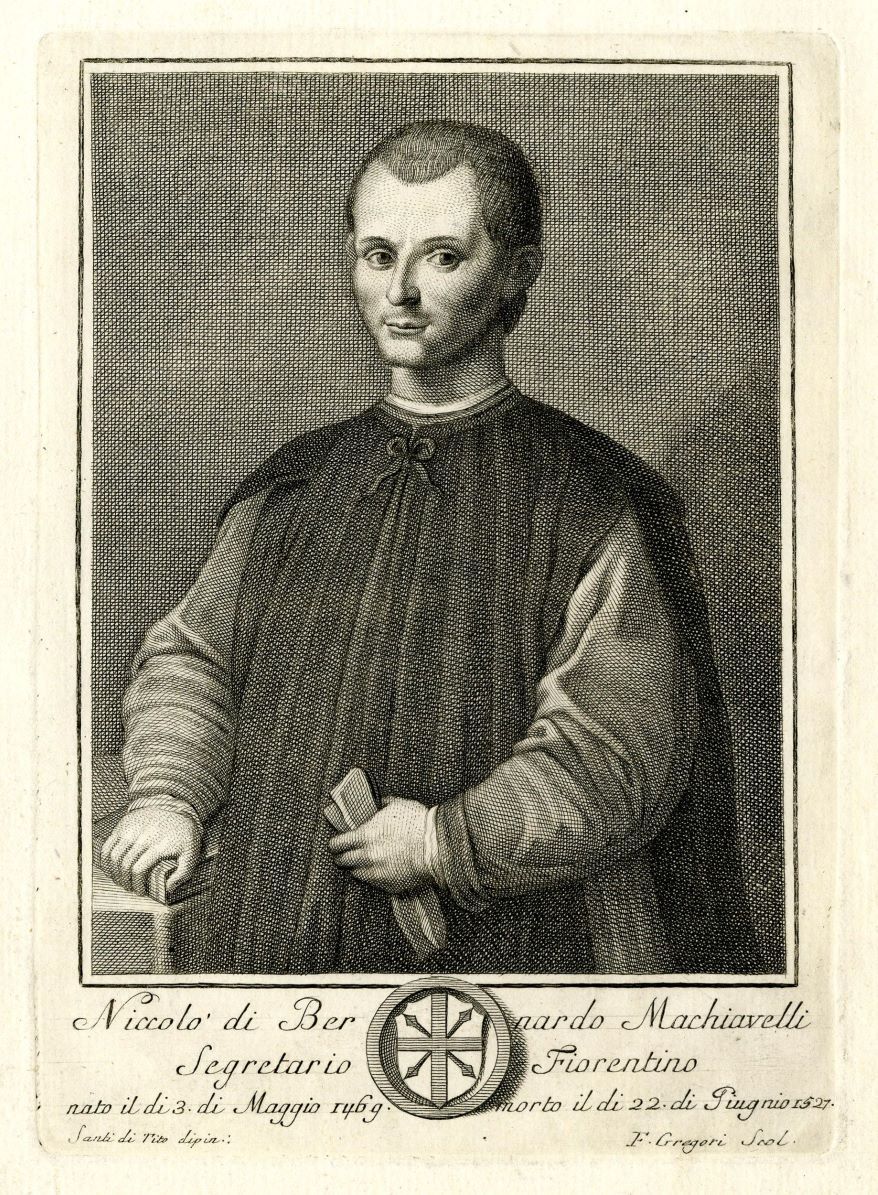Liberty Matters
Response
 It was a pleasure to read these essays, and I was particularly struck by Hall’s insight into the importance of perspective in Machiavelli’s political thought.
It was a pleasure to read these essays, and I was particularly struck by Hall’s insight into the importance of perspective in Machiavelli’s political thought.Recall how in the dedicatory letter to The Prince, which he addressed to Lorenzo de Medici, Machiavelli states that the people can understand the prince and the prince the people. But this then raises the question of whether either the people or their rulers understand themselves. The problem that Machiavelli seems to be pointing to here is the problem of self-knowledge. Is Machiavelli’s philosophy contemplative, as it is for Plato and Aristotle, and therefore fundamentally concerned with self-knowledge, or is it rather politically effectual and fundamentally concerned with the founding of regimes?
Edward Harpham examines three important features of Machiavelli’s thought that help to draw out Machiavelli's understanding of liberty. In the Prince, for example, Machiavelli focuses on individual liberty: What can individuals do to control their own destiny? By contrast, in the Discourses, Machiavelli appears to be concerned with cultivating liberty in a people, and thus the Discourses is a more openly republican book than the Prince. Just as an individual is free provided he controls his own destiny, so too a city is free if she conducts her own domestic and international affairs independent of foreign influence. The practical problem is how to establish a civil religion, as ancient Rome did, that instills virtue in a people and that is conducive to self-government.
Harpham identifies three important contributions that Machiavelli makes toward an understanding of political liberty. First, Machiavelli encourages us to assume that all individuals are wicked, and are prone to abuse power and dominate others. Second, religion requires rituals in order to form habits that are conducive to liberty. Often, however, a return to a religion’s austere beginnings is necessary in order to correct the people should their religious practices become corrupt. Third, Machiavelli simply assumes that class tensions are inevitable but may serve liberty provided proper institutions are in place to channel conflict into a system of checks and balances.
James Hartley focuses on the tenuous nature of liberty and the moral (or amoral) character of Machiavelli’s understanding of it. How can a city establish and maintain liberty? Great political effort is required if liberty is to be established. Indeed, an enlightened ruler is necessary in order to establish and maintain liberty. Establishing liberty, however, is difficult and is often in conflict with traditional morality. Consider for example Romulus, who founded Rome by first murdering his brother and then establishing institutions to maintain Rome's liberty. When Rome transitioned from a monarchy to a republic, the partisans of the old order, that is, the sons of Brutus, had to be murdered. And in the Prince, Machiavelli celebrates the vicious murder of Remirro de Orca, drawing the lesson that violence is often necessary for establishing law and order.
Hartley wonders: Is there a contradiction at the heart of Machiavelli's understanding of liberty? If liberty requires frequent illiberal measures, examples of which abound in Machiavelli’s writings, what then is the difference between liberty and tyranny? Machiavelli seems to have little to say about the content or character of liberty (at least in the Prince). Hartley draws our attention to one of the few explicit discussions of what Machiavelli means by liberty in the Prince, which amounts to abstaining from a citizen's property and spouse. For Hartley, Machiavelli’s impoverished, and perhaps even evil, notion of liberty is a consequence of Machiavelli reducing liberty to a means rather than to a moral end. According to Machiavelli, human beings are naturally acquisitive. Good government allows humans to acquire and maintain their possessions. This might constitute a lowering of the ends of politics in a way that not everyone will find to be satisfactory. Indeed, Hartley, like many others, sees Machiavelli as a serpent-like character who beguiles human beings with a vicious teaching that corrupts more than it serves human nature, to say nothing of liberty. We must bear in mind that liberty has traditionally been understood as a life governed by the practice of moral virtue and not license or the satisfaction of the passions.
Copyright and Fair Use Statement
“Liberty Matters” is the copyright of Liberty Fund, Inc. This material is put on line to further the educational goals of Liberty Fund, Inc. These essays and responses may be quoted and otherwise used under “fair use” provisions for educational and academic purposes. To reprint these essays in course booklets requires the prior permission of Liberty Fund, Inc. Please contact oll@libertyfund.org if you have any questions.